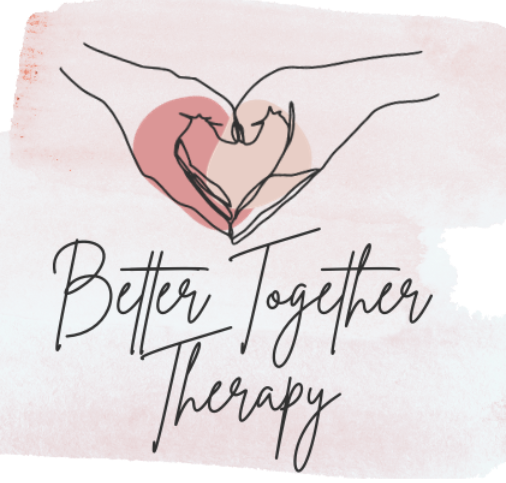Transitioning to adulthood is a complex journey filled with newfound independence and increased responsibilities. It’s a time of significant changes and milestones that shape your future. Embracing independence, taking ownership of your decisions and actions, setting clear goals, and acquiring essential life skills are all crucial steps in this process. Let’s explore the key aspects of transitioning to adulthood and how you can navigate this important phase of life with confidence, resilience, and life transition therapy in Austin, TX.
What is the Period of Transition to Adulthood?
The period of transition to adulthood typically spans from the late teens to the late twenties, though it can vary based on individual circumstances and cultural expectations. Known as “emerging adulthood,” this time of exploration and self-discovery allows you to gradually take on the roles and responsibilities associated with adult life.
During this period, you might pursue higher education or vocational training, enter the workforce, and start forming long-term relationships. Each of these experiences contributes to your growth and development, helping you build the skills and confidence needed to navigate adulthood successfully.
How Do We Change from Childhood to Adulthood?
Transitioning from childhood to adulthood involves several significant changes, both internal and external. Internally, you develop a greater sense of self-awareness and personal identity. This means understanding your values, beliefs, and goals, and how they influence your decisions and actions. Externally, you take on more responsibilities and begin to make independent choices about your education, career, and relationships.
A key part of this transition is learning to manage your time and resources effectively. This might involve budgeting your finances, balancing work and personal life, and setting priorities. Developing problem-solving skills and resilience is also crucial, as adulthood often brings unexpected challenges and opportunities.
Is Transitioning into Adulthood Hard?
Transitioning into adulthood can be challenging due to the significant changes and new responsibilities it brings. You may wonder what are the seven transitions to adulthood. However, it is also a time of immense growth and opportunity. The difficulty of this transition often depends on your support system, personal resilience, and the resources available to you.
One of the main challenges is achieving financial independence. This includes managing your income, expenses, and savings, as well as planning for future goals such as buying a home or starting a family. Establishing a stable career can also be challenging, involving navigating the job market, gaining experience, and pursuing further education or training.
Building and maintaining healthy relationships can be another challenge during this time. As you form new relationships and possibly start a family, you need to balance these connections with your personal and professional goals. Prioritizing self-care and mental health is essential to manage stress and maintain well-being.
What are the Major Transitions to Adulthood?
Several key transitions mark the journey to adulthood:
- Educational and Career Transitions: Moving from high school to higher education or vocational training is a significant step. This involves choosing a field of study, adapting to new learning environments, and developing the skills necessary for your career. Entering the workforce, changing jobs, or advancing in your career are other major transitions that require you to navigate professional environments and build your career path.
- Financial Independence: Achieving financial independence is a crucial aspect of adulthood. This involves budgeting, saving, and investing your money wisely. Managing debt, understanding credit, and planning for long-term financial goals are also important.
- Personal and Relational Growth: Developing long-term relationships, whether romantic or platonic, is a significant part of adulthood. This includes finding a life partner, building a family, and maintaining strong friendships. Effective communication, empathy, and the ability to navigate conflicts are essential skills.
- Residential Transitions: Moving out of your family home, relocating for a job, or buying your first home are major milestones. These transitions require you to manage household responsibilities, adapt to new environments, and establish a sense of stability and independence.
Navigating the Path to Adulthood
Ever wonder what does transition mean in adulthood? Transitioning to adulthood means embracing your independence and taking ownership of your decisions and actions. This involves setting clear goals and taking proactive steps to achieve them, whether it’s pursuing higher education, starting a new job, or building meaningful relationships. Acquiring essential life skills is crucial, including financial literacy, time management, and effective communication. Learning how to budget, save, and invest money wisely helps you achieve financial stability, while time management skills enable you to balance work, education, and personal life effectively. Continuous education and professional development are vital for career growth and adaptability in a rapidly changing job market.
Achieving financial independence involves earning an income and managing it responsibly, understanding debt, building good credit, and planning for future financial goals. Building and maintaining healthy relationships is essential for personal growth and well-being, requiring effective communication, empathy, and conflict-resolution skills. Prioritizing self-care and developing resilience are crucial for managing the stress and challenges of adulthood. Self-care includes activities that promote physical, emotional, and mental well-being, while resilience helps you cope with setbacks and adapt to changes, allowing you to thrive even in difficult circumstances.

Seeking Support and Engaging in Self-Reflection
If you are wondering, what are the challenges young people may face during the transition to adulthood, seeking support from mentors, advisors, and loved ones is invaluable during the transition to adulthood. These individuals can provide guidance, encouragement, and practical advice. Additionally, working with a life transition therapist can be particularly beneficial. Life transitions counseling at Better Together Therapy, offers specialized support to help you navigate significant changes and challenges. A life transition therapist can provide you with tools and strategies to manage stress, build resilience, and make informed decisions about your future.
Engaging in regular self-reflection is also essential. This practice helps you understand your experiences, learn from them, and apply those lessons to future decisions. By reflecting on your journey, you can better navigate the complexities of adulthood, ensuring that you grow and develop in meaningful ways. Therapy, combined with self-reflection and support from trusted individuals, creates a strong foundation for successfully transitioning to adulthood.
Transitioning to adulthood is a multifaceted journey filled with opportunities for growth and self-discovery. By embracing independence, acquiring essential life skills, pursuing education and training, and achieving financial independence, you can navigate this transition successfully. Cultivating healthy relationships, prioritizing self-care, and developing resilience are also crucial. With the support of mentors and loved ones and a commitment to self-reflection, you can confidently face the challenges and opportunities of adulthood.
Grow From Your Transition with Life Transitions Counseling in Austin, TX
Navigating the path to adulthood can be challenging, but you don’t have to do it alone. Embrace your journey of personal growth with the support you deserve. At Better Together Therapy, I offer specialized life transitions counseling to help you turn challenges into opportunities, fostering resilience and strength. Take the first step towards a healthier, more fulfilling future by following these three simple steps:
- Schedule a free 15-minute consultation to see if Life Transitions Counseling is right for you.
- Begin meeting with skilled Life Transition Therapist Samantha Serbin in Austin, TX.
- Overcome your challenges and thrive as you grow from your transitions.
Additional Therapy Services at Better Together Therapy in Austin, TX
At Better Together Therapy, I’m committed to supporting you through every stage of your personal journey. Beyond life transition therapy, I offer a variety of services designed to enhance your mental and emotional well-being. These services include Child and Adolescent Therapy, Anxiety Therapy, Depression Counseling, and Therapy for Family Dynamics.

